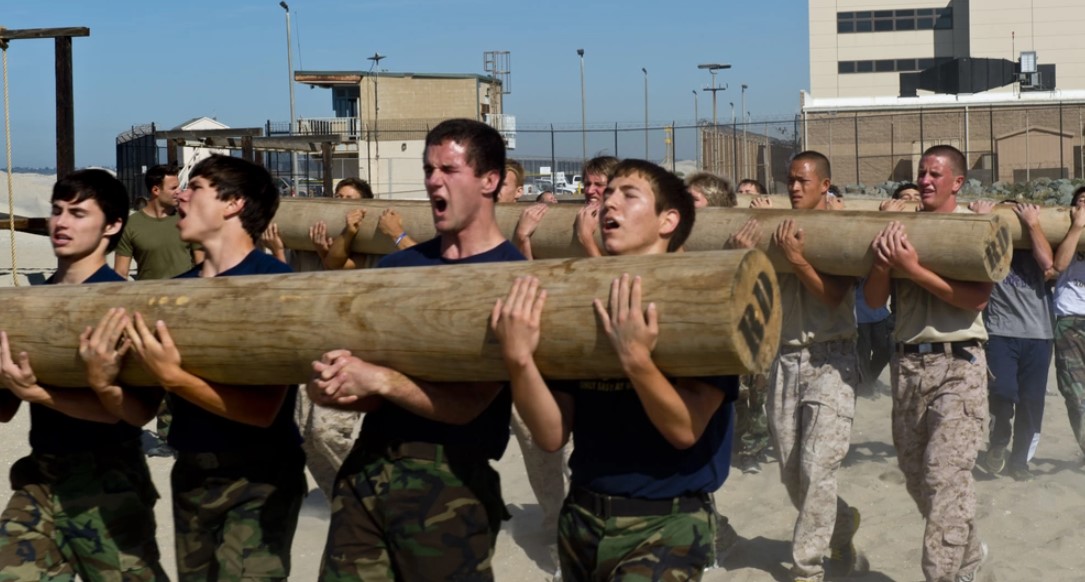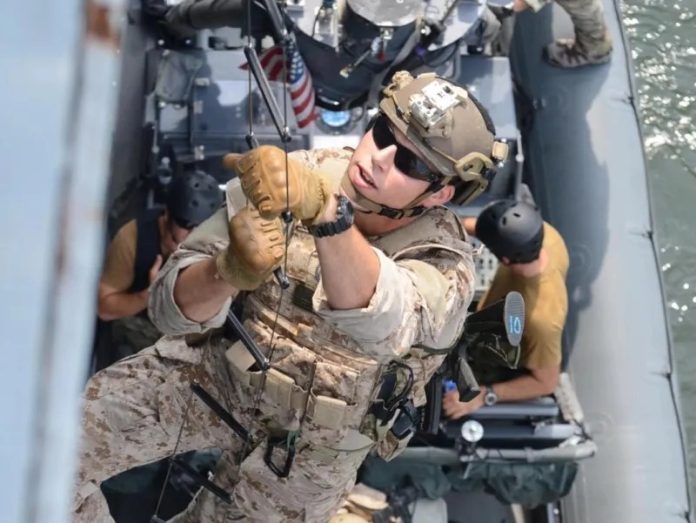Special operations forces attract a special breed of soldier. The true SOF hopeful is precisely focused, tirelessly motivated, and fully committed to their goal. Whether trying to secure Navy SEAL Hell Week, make it through Army Q Course, or push through the lengthy Air Force “Superman School,” the SOF candidate is defined by an urge to join the ranks of America’s most elite fighting forces. The relatively small number of officer billets in these communities makes the pool of applicants vying for them all the more competitive. Especially for special operations communities that can be directly entered without years of military service, like the Navy SEALS, the melee for an officer spot is fierce. This accessibility makes their selection all the more ruthless and raises concerns about which qualified SEAL candidates get the nod for a shot at BUD/s. Excluding the unicorn lateral transfer, SEAL officer candidates come from three main pools: the US Naval Academy, Officer Candidate School (OCS), and Naval Reserve Officer Training Corps (ROTC) programs at conventional colleges.
The Academy is expectedly to be a powerhouse for producing qualified candidates. It’s no secret that most of the Navy water polo team has their sights set on becoming SEALS, or they very often reach that goal. At an institution organized around creating model naval officers, it’s not a surprise that the students (especially the student-athletes) at the Academy are strong contenders for limited SEAL officer spots at BUDS. USNA gives them all the support they can, from SEAL-specific workout groups to special warfare-specific mentorship. When the Academy guys show up at SEAL Officer Assessment and Selection (SOAS), the final two-week “boot camp” filter before officially entering the SEAL training program, they often excel among their peers from other commissioning pathways.
That’s not to say that becoming a SEAL officer is hopeless if you’re not coming from the Academy. Pathways to the commission, like OCS or ROTC, offer advantages and a unique group of qualified candidates. For one, not everyone can get into the Academy. The application process is complicated, requiring high school applicants to earn an elusive congressional nomination, sit for an interview, and complete a lengthy online form. For another, only some people who hope to be a SEAL want to attend the Academy. Four years at a military school is not for everyone. The intense 12-week OCS course attracts candidates with college degrees who want to enter the NSW pipeline as soon as possible. ROTC provides the option for a traditional college education and experience as a candidate prepares to join the Navy. The flexibility of OCS or ROTC appeals to those unable to attend the Academy or those uninterested in attending a service academy (think of the Ivy League rower-turned-SEAL trope). There’s a case to be made for the diverse perspectives developed in experiences outside of the structured USNA system, be they from a “normal” college experience or civilian OCS candidates. SOF prides itself on creativity and adaptive problem-solving. The Academy produces qualified, even overqualified, candidates but can impress upon them a rigid, uniform approach to being a naval officer.

Regardless of the commissioning pathway, all future SEAL officers must make it through SOAS and, more importantly, BUDS. Anecdotally, a similar number of Naval Academy, ROTC, and OCS prospects are invited to SOAS to earn their spot in a future BUDS class. Naval Academy candidates, however, are usually the largest group. This makes sense if you acknowledge that these individuals have spent four years with a singular focus on becoming the best naval officer, and SEAL candidate, as possible at an institution designed to help them fulfill this vision. But it risks underemphasizing the advantages of the other candidate pools. ROTC candidates, if they lack quite as scrupulous a military bearing as their Academy peers, benefit from the creativity of a diversely spread education, especially those candidates from our country’s prestigious universities. An applicant motivated and competitive enough to gain admission to an ROTC program at a top university clearly has the ambition and talent needed in NSW. OCS candidates come from countlessly varied backgrounds, with professional expertise and real-world experience that can improve their decision-making as naval officers. Think of the Olympic athlete who turns to the military. Candidates commissioning from sources outside the Naval Academy should, of course, be assessed relative to their qualified Academy peers, but not in a way that dismisses or marginalizes their mismatched makeup.
Diverse thought benefits NSW and SOF in general. Reevaluating NSW’s criteria for selection and what candidates these criteria favor ensures NSW keeps talent on the table when developing its leaders. The Naval Academy can and should be relied upon for model NSW candidates, but not at the expense of alternative commissioning routes.
***
Author Bio
Cole Black grew up in San Diego, CA, and is currently attending Yale University. He is a sophomore pursuing a History major with a focus on War and Society. Cole grew up with three brothers. His father is a former Navy SEAL. Cole hopes to pursue a commission as a naval officer after college.
Want to share your story? Send your drafts today!
Read the full article here


